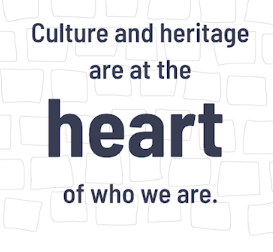|
Digital meets Culture https://www.digitalmeetsculture.net/article/the-arch-project-to-make-historical-areas-more-resilient/ Export date: Tue Feb 24 2:04:14 2026 / +0000 GMT |
The ARCH project to make historical areas more resilient ARCH is an European funded project led by Fraunhofer Institute for Intelligent Analysis and Information Systems IAIS (Germany) with participation of four European municipalities (Bratislava, Camerino, Hamburg, Valencia), research scientists, city network ICLEI and standardisation organisation DIN. ARCH is an European funded project led by Fraunhofer Institute for Intelligent Analysis and Information Systems IAIS (Germany) with participation of four European municipalities (Bratislava, Camerino, Hamburg, Valencia), research scientists, city network ICLEI and standardisation organisation DIN.Its purpose is providing unified, collaborative approaches for disaster risk reduction of historic areas with regard to climate change-related and other natural hazards. The project, that aims to better preserve areas of cultural heritage, will develop a disaster risk management framework to improve the resilience of historic areas to natural hazards. It will focus on the cities of Bratislava, Camerino, Hamburg and Valencia; it will co-create tools to help these cities save their cultural heritage from hazards and risks associated with the effects of climate change.  Camerino (Italy) was an important medieval city and has a rich and prestigious historic town centre. It was hit by devastating earthquake in 2016 that caused serious damage. Camerino is also at risk of hydrogeological events and heavy snow. Camerino (Italy) was an important medieval city and has a rich and prestigious historic town centre. It was hit by devastating earthquake in 2016 that caused serious damage. Camerino is also at risk of hydrogeological events and heavy snow.Hamburg (Germany): here the ARCH project will focus on the UNESCO World Heritage site and the updating of the management plan and monitoring system of the Speicherstadt and Kontorhaus District, in particular on present and potential damages caused by natural hazards, like flooding, heavy rain events and changes in the tidal differentials. The heritage of Bratislava (Slovakia) includes a medieval town centre with architectural, monumental, and archaeological, as well as natural heritage. The mainly risks are from heat waves, drought, fluvial and pluvial flooding, erosion, and other extreme weather events. The research of ARCH in Valencia (Spain) will focus mainly in its historical agricultural region Huerta analizing its dual role: • region who soffers the climate change: to know the impact help to draw resilience strategies. • region that helps mitigate the effects of the climate change in the city. The main results of Arch can be summarized in these points: • Disaster risk management and resilience assessment framework for historic areas • Data capturing and information management. • Simulation models to give decision-makers a deeper understanding of the potential Hazard that impacts the historic areas. • Risk-oriented vulnerability assessment. • production of a collaborative, web-based disaster risk management platform to help local authorities create and implement sustainable protection and reconstruction strategies. • Resilience options inventory: a collection of measures and pathways to build resilience will be provided, methods of assessing their usefulness and options for how to finance them. Further information: https://savingculturalheritage.eu/ |